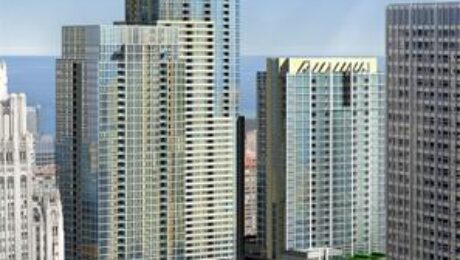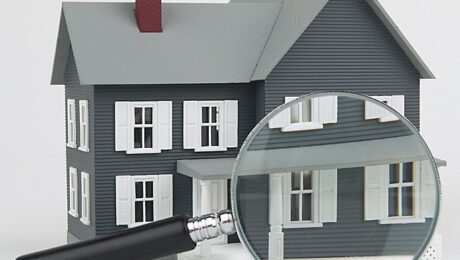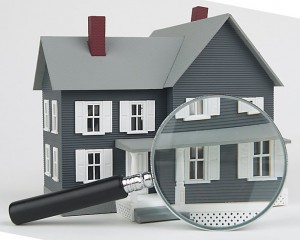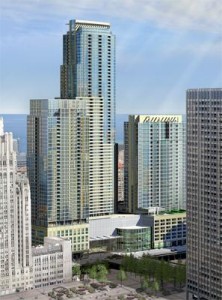 Whether you own your condominium, condominium complex, rent from the building or an owner, condominium damage can be quite tedious. There are several things you need to know if you have suffered damage to your condominium.
Whether you own your condominium, condominium complex, rent from the building or an owner, condominium damage can be quite tedious. There are several things you need to know if you have suffered damage to your condominium.
DID YOU KNOW?
Single family homeowners have an understandable picture of their insurance needs. They are required by the mortgage company to maintain coverage in case of a loss. The bank does not want to lose the security of their loan in case of a catastrophe. As a condominium owner, your ownership is abstract, so it’s more difficult to determine the need for insurance. Your property is shared with others in the same building or on the same land. In fact, most condo owners do not have an individual insurance policy on their property at all! This means that any loss not covered by their association will be at their own expense.
Protect your assets! Even though you have insurance through you homeowners association, you should obtain additional insurance for your individual unit, especially if you have tenants occupying your property. You need insurance to provide protection when the unexpected fire, flood, or theft takes place. If a guest is injured on your property, you need liability insurance for their medical expenses.
If you own an individual unit in a condominium:
Precautions in dealing with Home Owners Associations
Upon recognizing that the cause of damage was likely the result of association related carelessness, some boards mismanage the matter to the point where an attorney would have to get involved. More often than not, such battles can begin when a board fails to distinguish and treat the problem when they first learn of them. A board’s resistance to correct the problem, let alone acknowledge that a serious problem even exists, often results in denial, delay and intimidation.
When dealing with damages from the common areas it is important to first thoroughly understand what is meant by the term “common.” There are many complexities to this in a condominium structure. Each owner should acquaint themselves with their own associations governing documents, specifically their covenants, conditions and restrictions regarding the sections concerning “common” and “common area”.
If you think you have a mold issue because of water damage from the common area, it is very important to carefully document this. Owners often communicate their requests verbally without placing it in writing. It is imperative that you back up all verbal communication in a letter. Be sure to address the letter to the board of directors of your condominium. You can fax this letter in to them, however if you do not get some sort of written notice with 10 days, you should resend it through returned receipt such as certified mail. Mainly, be sure to have evidence of proof of mailing so that the board cannot refute that they never received any notification.
It is also very important to make certain that the problems that you are experiencing are addressed in your next board meeting. After you send your letter, make a written request for your issue on the agenda at the next meeting. It is vital to attend all open board meetings. If your association in any way prevents you from discussing your issues of the common area problems that affect your unit, this may be a red flag to a history of more serious problem.
Be sure to photograph ANY damages to your unit as well as the surrounding areas. Video cameras include options for date, however you may also be able to include dates in photographs as well. It is also always a good idea for resident owners and landlords to maintain a photographic log of all belongings of value for insurance purposes, in case of property loss or damage.
Each unit owner should have a copy of the association insurance policy. It is the right of each owner to request and receive this information. They should also have a copy of their association policy and procedure for water damage and mold. If no such policy exists, be sure to obtain a copy of that in writing from your association. It is not uncommon for an association to deny or withhold a policy for water damage and or mold only to later produce this using it against the owner.
The integrity of your condominium can depend upon the integrity of your association-its board of directors-property manager- association attorneys- management company- maintenance employees and vendors. With all the problems of adjoining walls, tricky and sometimes unkind boards, callous association attorneys, along with few individual homeowner rights, many condo owners are packing it in and moving on. Until legislation changes to better protect the homeowner, leaving an HOA may not be such a bad idea.
If you rent a condominium from a landlord or from a building complex:
Before renting a condominium, be sure that your lease agreement discusses the possibility of property damage. Also, verify that your landlord has insurance that protects your interests as well as theirs. Always has photographic evidence of all of your valuable possessions.
Be sure to report any and all problems with your unit before you sign your lease agreement. If you encounter any type of damage from hurricane, tornado, flood, mold etc. be sure to document all damage and report it to your landlord immediately.
Conclusion:
Whether you own or rent you should always make sure you are protected with insurance. If you have suffered a loss to your property damage, call a licensed public adjuster today, to help you with this difficult process. Out adjusters are licensed and experienced in dealing with large and small claims of all types. Contact All American Public Adjusters, Inc. today.
[representyouinsurancepolicies]
[footer1]
- Published in Services
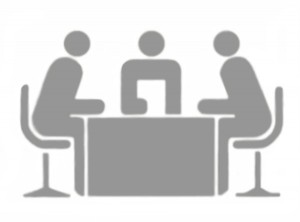 As outlined in a general homeowners insurance policy:
As outlined in a general homeowners insurance policy:
“If you and we fail to agree on the amount of loss, either may:
- Demand a mediation of the loss in accordance with the rule established by the department of financial services. The loss amount must be $500 or more, prior to application of the deductible; or there must be a difference of $500 or of $500 or more between the loss settlement amount we offer and the loss settlement amount we offer and the loss settlement amount that you request. The settlement in the course of the mediation is binding only if both parties agree. In writing on a settlement and you have not rescinded the settlement within 3 business days after reaching settlement. You may not rescind the settlement after cashing or deposition the settlement check or draft we provided to you.
We will pay the cost of conducting any mediation conference except when you fail to appear at a conference. The conference will then be rescheduled upon your payment of the mediator’s fee for that rescheduled conference. However, if we fail to appear at a edition conference, we will pay your actual cash expenses you incur in attending the conference and also pay the mediator’s fee for the rescheduled conference.
- Demand an appraisal of the loss. In this event, each party will choose a competent appraiser within 20 days after receiving a written request from other. The two appraisers will choose an umpire. If they cannot agree upon an umpire within 15 days you or we may request that the choice be made by a judge of a court of record in the state where the “residence premises” is located. The appraisers will separately set the amount of the loss. If they fail to agree, they will submit their differences to the umpire. A decision agreed to by any two will set the amount of loss.
Each party will:
1: Pay its own appraiser and
2: Bear the other expenses of the appraisal and umpire equally
If however, we demanded the mediation and either party rejects the mediation results, you are not required to submit to, or participate in, ay appraisal of the loss as a preconditioned to action against us for failure to pay the loss.
[representyouinsurancepolicies] [footer1]- Published in Services
Home inspection is process of having a home, most often goes in hand to hand with the buying of the home, inspected and viewed for the safety of the buyer. The point of home inspection is to view any concerns with the property’s conditions, such as mold, any insect infections, and possibly anything else that would affect the status of the home. The agent performing the inspection would check different locations of the building that might have errors in them, such as the roof, the basement, the heat system, piping systems, the structure per se, plumbing, and electrical related aspects. Although, this is not limited to these select few.
The inspector would write detailed examination of all the information found, and would present it to the client who is interested in purchasing the home. The home inspector also will describe the condition of the home at the time of the examination, but will not promise anything for future of the home. Though, while the inspection will be done thoroughly, there’s no guarantee that every problem will be discovered. It is upon the buyer then, to make any decisions concerning the buying of the house.
All inspectors are extremely well trained in their fields are reliably accurate in their examinations. While they will accurately inspect the condition of the home at the current time, they will not inspect whether the house falls in contrary to code and/or zone regulations.
[representyouinsurancepolicies] [footer1]
- Published in Services


